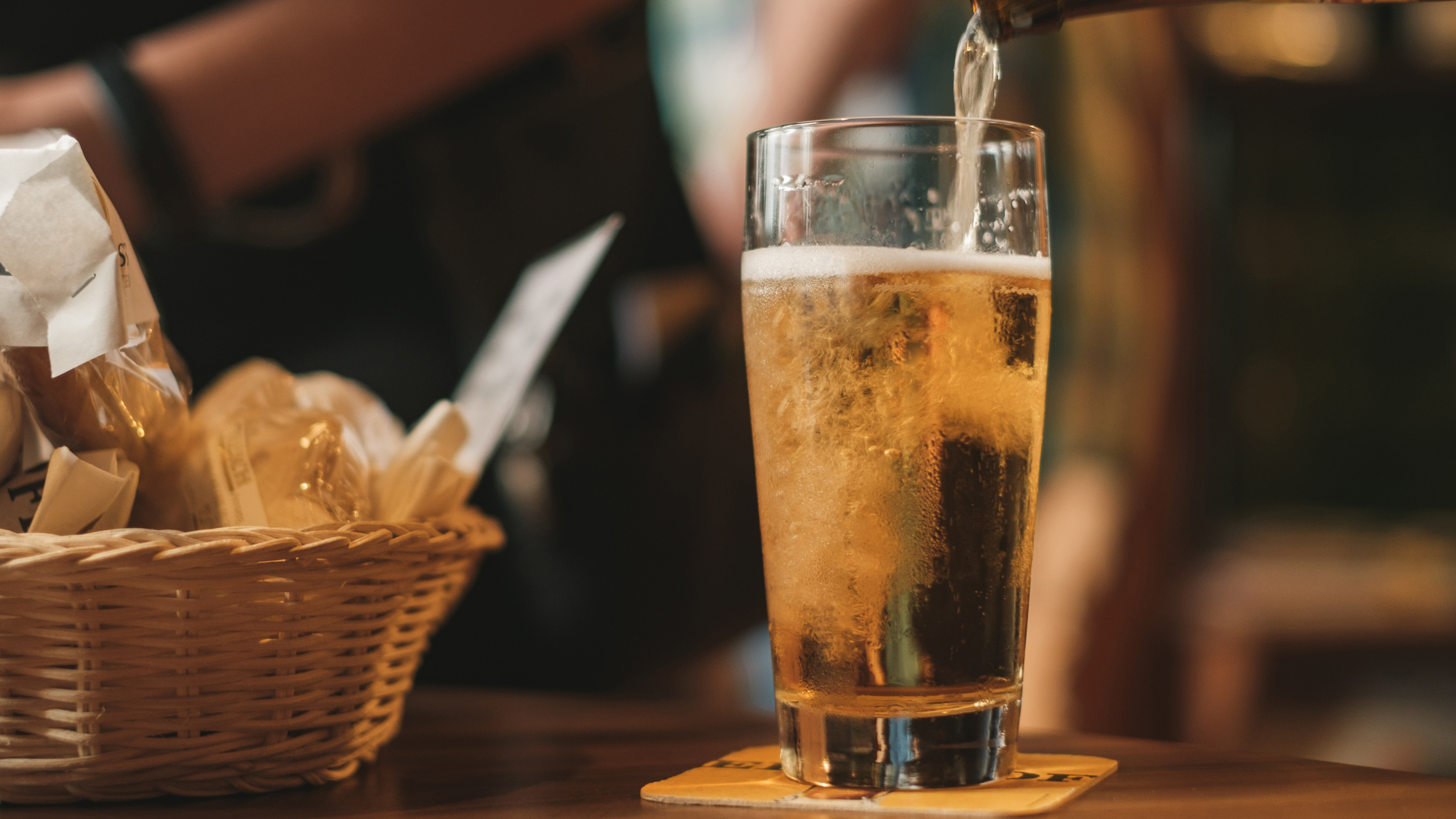The big problem with the COVID-19 pandemic nobody's talking about
Increased use of alcohol during the COVID-19 pandemic could be causing a second physical and mental health crisis


Start your week with achievable workout ideas, health tips and wellbeing advice in your inbox.
You are now subscribed
Your newsletter sign-up was successful
The COVID-19 pandemic has created an unprecedented time of stress for people all over the world. Many have lost their jobs, and many more of us are stuck inside in fear of catching and passing on the deadly disease. So what's our first go-to reaction in times of stress? Often, it's hitting the bottle.
- NEW: The weight loss diet rule you need to follow during lockdown
- Plus: Exercise at home is JUST as effective as the gym, according to science
A national survey of the United States found the frequency of alcohol consumption had increased by around 19% among adults aged 30 to 59 since the pandemic began. This included heavy drinking episodes, or taking at least four drinks within a span of several hours.
Michael Pollard, lead author of the study and a sociologist at RAND, told MedicalXpress: "We've had anecdotal information about people buying and consuming more alcohol, but this is some of the first survey-based information that shows how much alcohol consumption has increased during the pandemic."
A second report, published recently by the Journal of General Internal Medicine, highlights the reasons why this might be: alcohol consumption is a common coping mechanism, and it has reportedly increased in the United States following catastrophic events, such as terrorist attacks and large-scale natural disasters.

With all of us stuck inside and liquor stores being some of the few shops to remain open during the pandemic, it's been easy for us to have a few more glasses than normal this year. But because the COVID-19 pandemic is longer-lasting than the events listed above, the resulting increase in our alcohol intakes could have a greater impact on our health.
Alcohol is a well-known depressant, increasing feelings of anxiety and depression according to the Royal College of Psychiatrists. Although there is a short-term relief effect when we drink alcohol, which releases the happy chemical known as dopamine, frequent alcohol misuse exacerbates those negative feelings in the long term.
if you're feeling that alcohol is negatively affecting your life, it might be time to try cutting back on drinking. Many people can experience negative effects of drinking alcohol without being labelled or considering themselves an "alcoholic" or experiencing physical symptoms of addiction. You can cut back or stop entirely to experience positive benefits.
Start your week with achievable workout ideas, health tips and wellbeing advice in your inbox.
These benefits include weight loss – alcohol, after all, is chock-full of calories, with one small glass of red wine containing around 130 kcal. You're likely to slim down a little when you cut back.
In addition, quitting alcohol allows your internal organs to recover from the effects of consistently filtering the harmful effects of alcohol, and you'll naturally drink more water to replace the dehydrating effects of alcohol.
In addition, feelings of anxiety are likely to be reduced, and feelings of depression are likely to be less severe. Without the dizzying heights of alcohol to drop from, the lows often become much shallower. And, of course, you won't get hangovers.
If you're serious about quitting alcohol but find you're unable to cut back, you can find lots of support and resources on giving up alcohol, and tackling alcoholism during COVID, right here.
Liked this?
Matt Evans is an experienced health and fitness journalist and is currently Fitness and Wellbeing Editor at TechRadar, covering all things exercise and nutrition on Fit&Well's tech-focused sister site. Matt originally discovered exercise through martial arts: he holds a black belt in Karate and remains a keen runner, gym-goer, and infrequent yogi. His top fitness tip? Stretch.
